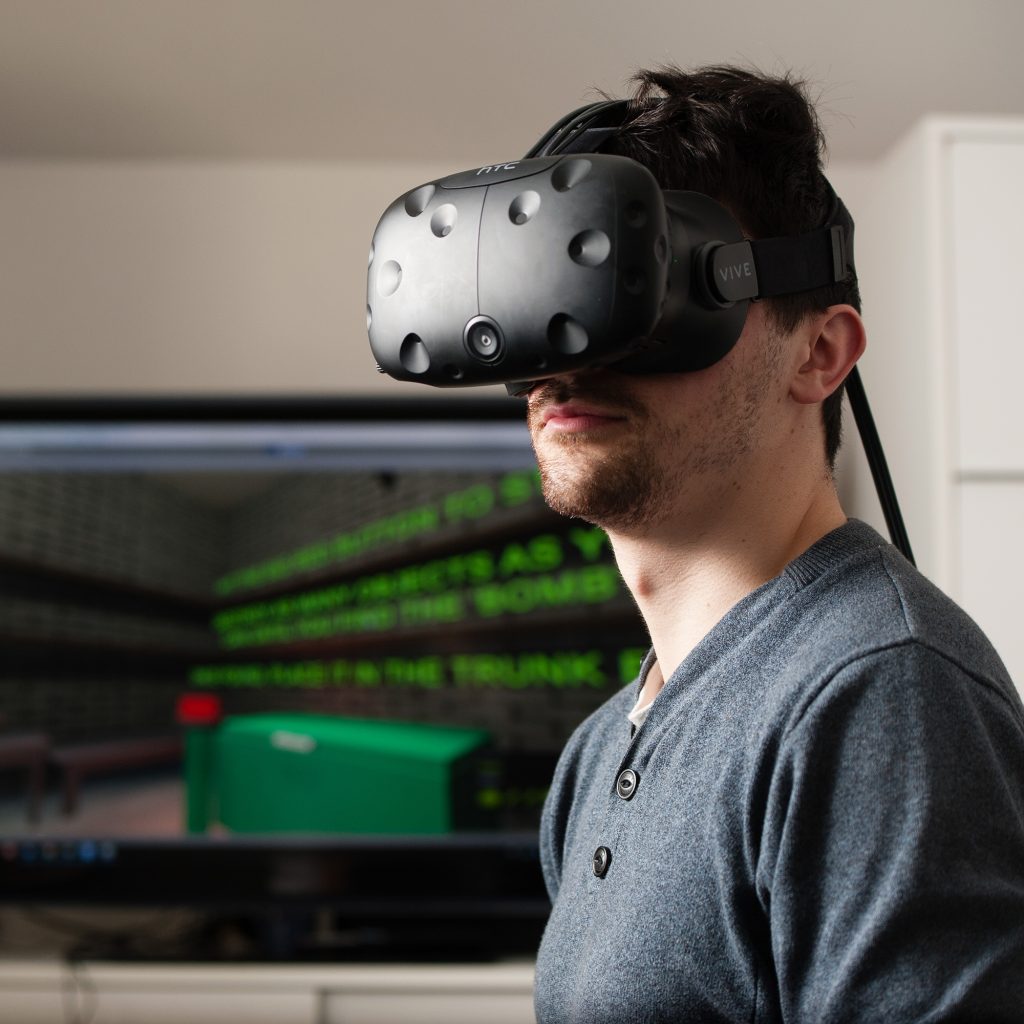Game technologies
Discover our range of games technologies courses, find out more about our facilities and hear from current students about their experience at University of Gloucestershire.
Jump to courses: Undergraduate | Postgraduate taught | Postgraduate research
Undergraduate courses
Study an undergraduate degree in game technologies at the University. Discover our undergraduate game technologies courses below.
If you’re returning to education or don’t think you’ll meet the entry requirements for your course, an integrated foundation degree could be a great option. They provide an extra year of study to equip you with the skills needed to confidently progress to a full degree.
Postgraduate taught courses
Study a postgraduate degree in game technologies at the University. Discover our postgraduate game technologies courses below.
Postgraduate research degrees
Research degrees including PhDs, Doctorates or Masters by Research enable you to pursue your own research enquiry.

Open days
Book an open day to find out what it’s like to be a student here and make the right decision about your next step.
95% of our graduates are in employment or further study*
*Graduate Outcomes Survey published 2024 and based on 2021/22 leavers
Come and explore
Experience our amazing facilities including our suites and studios.

School and facilities

State of the art facilities
Workshop space including consoles, VR headsets. We use the industries latest technology including eye tracking, quad copters and robots. Within our media centre there is also a VFX green screens studio, recording studios, voice over recording studios and creative sound labs.

Placements and industry links
Our students have the opportunity to undertake a 12 month placement as part of their studies. Previous students have worked with Unity, Sumo Digital, Team17 and Neon Play.
We are one of few UK universities to have PlayStation First Academic programme, which means you’ll have access to Sony PlayStation Development tools for PlayStationVita, PlayStation4 and PlayStationVR platforms.

Conferences
Students have the chance to showcase their work to industry professionals at COMX, our own creative computing degree show, sponsored by the Institute of Engineering (IES).
Game technologies FAQs
We’ve compiled a list of frequently asked questions about game technologies degrees.
-
If you’re passionate about gaming and computing then a games technologies degree may be for you. You can study games technologies and gain skills within games programming, design and games art depending which interests you the most.
-
Studying a game technologies degree will set you up for a varied career within an exciting and ever changing sector. Depending on your interest you can study technical games programming, or specialise in games art and design.
Our expert lecturers have years of experience within games technologies and have worked on some of the most recognisable games released.
-
We offer a range of game technologies degrees at both undergraduate and postgraduate levels. At undergraduate level you can study Computer Games Programming BSc (Hons) if you are interested in that aspect of the subject. If you are interested in the creative side you can study Animation BA (Hons), Computer Games Design BSc (Hons) or Games Art BSc (Hons).
At postgraduate level we offer Animation MA, and Game Development MSc. If you wish to research your own research enquiry within game technologies you can do this with us too.
-
If you choose to study a games programming degree you will gain the skills and experience to progress onto becoming a games programmer, mobile applications developer or software developer. Specialising in games design will allow you to work as a technical artist, animator, modeller and a games designer.
Graduating from our Games Art BSc (Hons) course can lead to many careers within games art including a 3D artist, UI artist, or if you prefer the character development you can become a character artist.
-
Interested in applying for one of our game technologies courses? Applications for undergraduate degrees are made through UCAS, while applications for postgraduate degrees are made directly to the university.

; ?>)